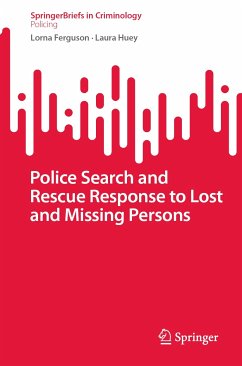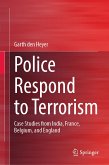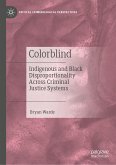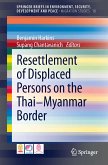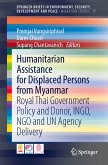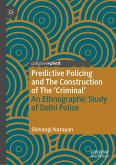This brief discusses the significant contribution of police search and rescue to the successful location and resolution of missing persons cases.
Across seven chapters, this volume offers a detailed examination of the routine practices of police search and rescue personnel. To do so, it draws from a collection of data, including in-depth interviews with police and thousands of different types of missing persons records. Laced with the stories of missing persons, it presents a detailed overview of what these teams do, the processes and procedures employed, and the tools and technologies in police search and rescue. It explores some of the challenges impacting police search and rescue response, emphasizing how to leverage this work in the field. This book also identifies future trends to address the “What may be next” question in the police search and rescue response to missing persons.
As the first analysis of the role of police in search and rescue missions, this brief is of interest to law enforcement professionals and researchers of policing, policymakers, and professionals in psychology, criminology, sociology, and beyond
Across seven chapters, this volume offers a detailed examination of the routine practices of police search and rescue personnel. To do so, it draws from a collection of data, including in-depth interviews with police and thousands of different types of missing persons records. Laced with the stories of missing persons, it presents a detailed overview of what these teams do, the processes and procedures employed, and the tools and technologies in police search and rescue. It explores some of the challenges impacting police search and rescue response, emphasizing how to leverage this work in the field. This book also identifies future trends to address the “What may be next” question in the police search and rescue response to missing persons.
As the first analysis of the role of police in search and rescue missions, this brief is of interest to law enforcement professionals and researchers of policing, policymakers, and professionals in psychology, criminology, sociology, and beyond

